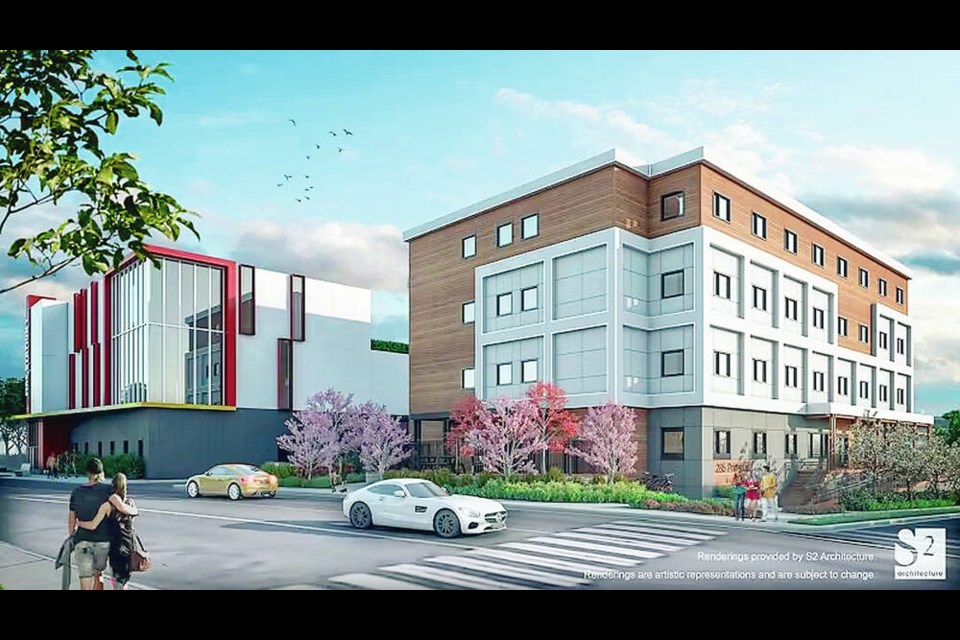A hundred new supportive-housing units are expected to open in Nanaimo in coming weeks and months as the city and province team up to help the growing number of unhoused people.
A memorandum of understanding between the province and city was signed Monday in Nanaimo, and includes providing a more co-ordinated response to homeless camps in the region and supplying support services for those without homes.
“We are determined to get people experiencing homelessness the care and supports they need, so they can move from homelessness to a stable home,” said Housing Minister Ravi Kahlon.
Plans include new transitional housing in pre-fabricated structures for up to 50 people at 1300 Island Highway south, a vacant parcel that will be leased by B.C. Housing and include support services. No opening date was announced.
As well, 50 existing units will remain open as sheltered housing at Newcastle Place, a temporary facility at 250 Terminal Ave.
Newcastle Place residents will be moving in a few weeks into Cornerstone, a newly built 51-unit, permanent supportive housing project at 285 Prideaux St.
In the Cornerstone project, the city owns the land and the province built the housing.
Island Crisis Care Society will continue operating Newcastle Place under contract with the province.
The 100 temporary spaces on Island Highway South and at Newcastle Place will provide an interim housing solution for people who have been staying in shelters long-term, and free up shelter space, the province said.
Gaining 100 new supportive housing units in Nanaimo is a “significant improvement,” said Nanaimo Mayor Leonard Krog.
The city’s population of people without homes is estimated at 800 to 1,000. Many are dealing with mental health, addiction and brain-injury issues.
Ongoing social disorder on city streets is a source of frustration for many Nanaimo residents, Krog said.
Nanaimo is following Prince George, Kelowna and Abbotsford in working with the province and B.C. Housing to implement HEART and HEARTH programs as part of the province’s Belonging in B.C. homelessness plan, which expects to add 3,900 new supportive housing units and 240 complex-care spaces throughout the province.
The HEART part of the initiative includes the province, local governments, Indigenous representatives, health-care agencies and non-profit organizations assessing the needs of people living in camps and providing supports and services to help people move indoors.
“Throughout B.C. homelessness is a terrible problem worsened by the pandemic, by global inflation and by cascading pressures between communities,” said Sheila Malcolmson, minister of Social Development and Poverty Reduction.
“We are all working together to stop the homelessness cycle and to prevent the growth of encampments. This is the right thing to do.”
>>> To comment on this article, write a letter to the editor: [email protected]



